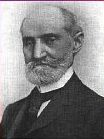Antimonium Tartaricum Adapted to torpid, phelgmatic persons; the hydrogenoid constitution (of Grauvogl). Diseases originating from exposure in damp basements or cellars (Arsenicum, Aranea, Terebintha). Through the pneumogastric nerve it depresses the respiration and circulation, thus producing the keynote of the remedy, viz., when the patient coughs there appears to be a large collection of mucus in the bronchi; it seems as if much would be expectorated, but nothing comes up. Child clings to those around; wants to be carried; cries and whines if any one touches it; will not let you feel the pulse (Antim crud., Sanicula). Face cold, blue, pale, covered with cold sweat (Tabacum). Tongue coated pasty, thick, white, with reddened papillae and red edges; red in streaks; very red, dry in the middle; extraordinary craving for apples (Aloe- for acids, pickles, Antim crud.).Antimonium Tartaricum has Vomiting: in any position except lying on right side; until he faints; followed by drowsiness and prostration; of cholera morbus with diarrhoea and cold sweat, a dose after each attack (Verbascum). Asphyxia: mechanical, as apparent death from drowning; from mucus in bronchi; from impeding paralysis of lungs; from foreign bodies in larynx or trachea; with drowsiness and coma. Antimonium Tartaricum has Great sleepiness or irresistible inclination to sleep, with nearly all complaints (Nux moschata, Opium). Child at birth pale, breathless, gasping; asphyxia neonatorum. Relieves the “death rattle” (Tarantula).Antimonium Tartaricum has Icterus with pneumonia, especially of right lung.
Antimonium Tartaricum Relations. – Similar: to Lycopodium; but spasmodic motion of the alae is replaced by dilated nostrils; to Veratrum, both have diarrhoea, colic, vomiting, coldness and craving for acids; to Ipecac, but more drowsiness from defective respiration; nausea, but > after vomiting. When lungs seem to fail, patient becomes sleepy, cough declines or ceases, it supplants Ipecac. For bad effects of vaccination when Thuja fails and Silicea is not indicated. Before Silicea in dyspnoea from foreign bodies in the larynx or trachea; Pulsatilla in suppressed gonorrhoea; Terebintha from damp basements. Children not easily impressed when Ant. tart. seems indicated in coughs, require Hepar. In spring and autumn, when damp weather commences, coughs of children get worse.
Aggravation. – In damp, cold weather; lying down at night; warmth of room; change of weather in spring (Kali sulph., Natrum sulph.).
Amelioration. – Cold open air; sitting upright; expectorating; lying of right side (Tabacum).

